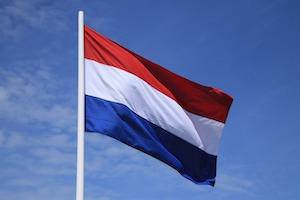The Dutch gambling regulator has reiterated its desire for better powers to oversee the industry after publishing the latest market figures for the Netherlands.

The legal online gaming market grew by 4.9 per cent in 2024, “significantly less” than growth of 28.9 per cent in 2023, Kansspelautoriteit (KSA) said.
The regulator added that the risk of illegal supply in the land-based gaming sector is increasing after the number of player seats at land-based casinos and gaming halls fell last year.
Holland Casino, one of the biggest operators in the country, has been facing financial pressures and had to shut its Zandvoort branch in February.
The KSA has insisted that if stricter rules for player protection are implemented, they must not lead to an increase in the size of the illegal market.
The Dutch government’s state secretary for legal protection, Teun Struycken, revealed earlier this year that he will present a reworked gambling bill by the end of this year as the country looks to better improve gambling regulation.
The KSA has previously insisted it wants measures such as IP blocking to be better integrated.
In its latest report, the regulator said the current legislation does allow this method of oversight, but it added the procedure is “is extremely slow and therefore ineffective” and that adjustments are needed to enable “rapid” website blockages.
More involuntary exclusion from gambling sites via the Cruks self-exclusion register is also a KSA target.
“To prevent gambling addiction, a person can be forcibly registered for a gambling exclusion in the central register against their will,” the regulator said.
“However, very few involuntary registrations occur. This is due to strict criteria, a high burden of proof and a short exclusion period of six months. We want to simplify the procedure and extend the exclusion period to increase its effectiveness.”
Kansspelautoriteit wants to switch the perspective on gambling advertising to “everything is allowed unless explicitly forbidden” to “everything is forbidden unless explicitly allowed.”
“For effective oversight of both legal and illegal online gambling, we need the ability to participate anonymously in remote gambling (mystery shopping),” the KSA concluded.
“Naturally, gambling operators must not know that they are being monitored, as they might alter their behaviour – just as drivers behave differently when a police car is behind them.
“This requires the use of false identity documents. Currently, only the Dutch National Office for Identity Data can legally issue such documents, and a legal amendment is necessary to allow this.”
Read more: Dutch match-fixing signals more than double

